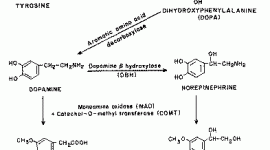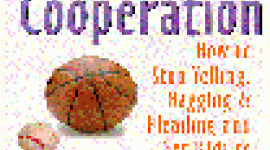Safe Storage and Administration of Methylphenidate
Summary of storage and usage guidelines for ADHD stimulant medications - Ritalin, Equasym and Concerta.
We have all been aware recently of the articles in the media concerning medication in the treatment of ADHD.
We must all take the responsibility to ensure that if we use ADHD stimulant medication, we learn more about it and how to store and administer this medication correctly and within proper safety guidelines.
It is only when we do this can we respond to these articles to change the media image for ADD/ADHD and stimulant medication, to start to gain more acceptance and services for all those with the condition.
- Methylphenidate is the generic name of this medication. However, the more common names are the brand names Ritalin, Equasym and Concerta.
- Medication should only be used/taken by the person it has been prescribed for.
- Methylphenidate is a stimulant medication - it is classified as a Class B, Schedule II medication. This means that it is called a "Controlled Drug" or "C.D.
- This fact means that it needs to be treated with respect. We need to be aware of this and keep it in mind when we take responsibility for it on behalf of our children if they are prescribed it or if prescribed for ourselves.
Storage of stimulants needs to be considered
- As a Class B medication Methylphenidate is prescribed on a named person basis - by this it means that the prescription is handwritten.
- Being a "Controlled Drug" ("C.D.") this means that in a Pharmacy Methylphenidate is kept under strict conditions and always should be kept under lock and key, along with many other medications with the classification of "Controlled Drug" status.
- At home or school keep the stimulant medication under lock and key so that no one has the opportunity to take any tablets which they have not been prescribed or should not have access to.
Care needs to be taken from the start.
- Confidentially should be observed by all parties. When handing over or collecting the prescription, you should feel confident in the pharmacist and staff, that they will maintain your confidentiality when they dispense the medication.
- You should also ensure that you also keep the confidentiality of the prescription - there is no need to discuss the content in front of other customers. Be aware there are people out there who will know what the medication is that you are referring to and these people will also probably know ways of abusing this and many of the other medications, "Controlled Drugs".
- Make sure that the person for whom the medication has been prescribed actually takes the tablet at the time it is administered. Don't let them take it away to take later.
- If you wish someone to give medication to a child at school, make sure you have advised them correctly about the medication. If one person does not feel they wish to take the responsibility for this, speak to someone who is.
If ADHD medication is administered at school
- The school should also take extra precautions with regard to the administration of Methylphenidate:
- There should be written confirmation from the child's consultant that the particular child has been diagnosed by that consultant with ADD/ADHD and has been prescribed the medication, this should include the dosage and timings for taking the medication, also any other treatments which are being considered or being given.
- Any changes to dose or timing should also be confirmed by the consultant and kept on file. This covers the school on administration issues.
- If a parent wishes the school to alter dosage or timing then they should be able to give the confirmation from the child's consultant that this is being done under their guidance.
- It is important that the school and the doctor work together to help the child and it would be good if the school could go through things with the doctor and also help with the various behaviour rating scales as this helps to optimise the medications effective dose for the child to reach the maximum benefit for the child. This helps the school and the doctor and also the child and their family. Co-operation with Education - Health and the Child and Family is a big step to the success to the treatment programme.
- Staff need to be fully aware of that Methylphenidate is a Class B, Schedule II medication and is a "Controlled Drug".
- They need to be confident and prepared to take on the responsibility for administering the medication to the child and also to consider the safe storage of it.
- Keeping Methylphenidate in the teachers unlocked desk drawer is not acceptable. Methylphenidate should be kept in a central location in a locked cupboard or drawer and should be signed for when given to the child.
- Remember that Methylphenidate as a "Controlled Drug" should not be carried by a child - This includes those at High School - Even at the age of 14, 15, 16 years + it is not appropriate for the child to carry Methylphenidate with them.
- Implications of a child carrying Methylphenidate, especially if they do not have any proof that it is prescribed for them is the same as it would be for carrying any other "Controlled Substance" - The police could arrest them for being in possession of a "Controlled Substance" - depending on the amount carried. This could be considered as intent to supply.
- At the end of the day, the safe storage and administration of Methylphenidate lays with the adult - the Parent or the teacher or other appointed named adult.
In the Government Guidance document Drugs: Guidance for Schools, date of issue: February 2004, it talks about illegal drugs but it also states:
"Schools should be aware that Methylphenidate Hydrochloride (Ritalin) is a class B drug that may be prescribed as part of the treatment for those diagnosed with Attention Deficit Hyperactivity Disorder (ADHD). As with all prescribed medication it may only be taken by those for whom it has been prescribed. Inappropriate use of Ritalin, including sharing or selling to others, should be dealt with in line with the school's drug policy."
A final point on the subject of the safety issues surrounding Methylphenidate is Concerta has now become available in the UK - This is a one-a-day form of Methylphenidate and therefore takes away the need to take medication at school / during the day. It also uses a different delivery system for administering the tablet itself which makes it almost impossible to abuse. There are other forms of slow release methylphenidate which are available.
APA Reference
Staff, H.
(2009, January 4). Safe Storage and Administration of Methylphenidate, HealthyPlace. Retrieved
on 2026, March 4 from https://www.healthyplace.com/adhd/articles/safe-storage-and-administration-of-methylphenidate


